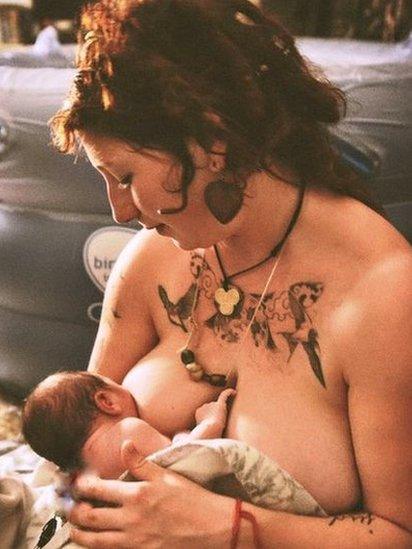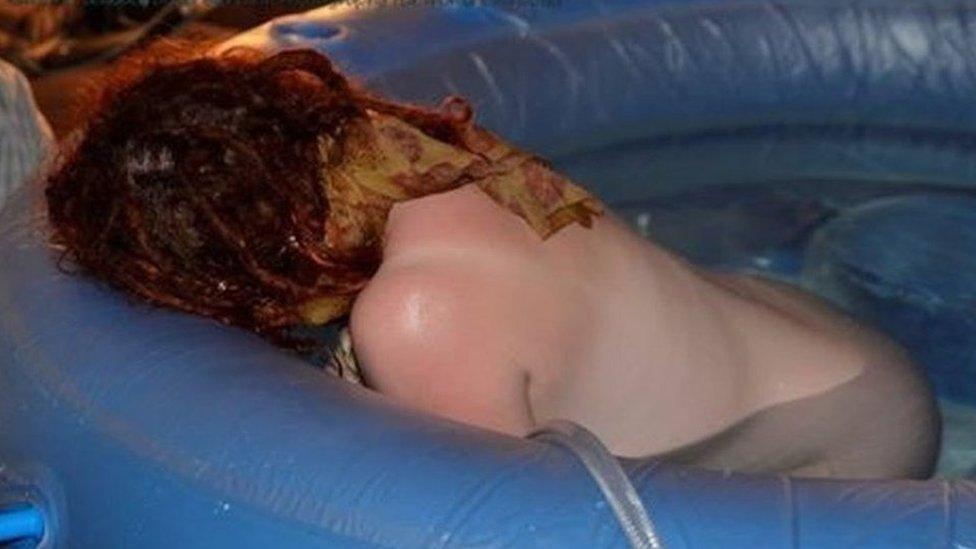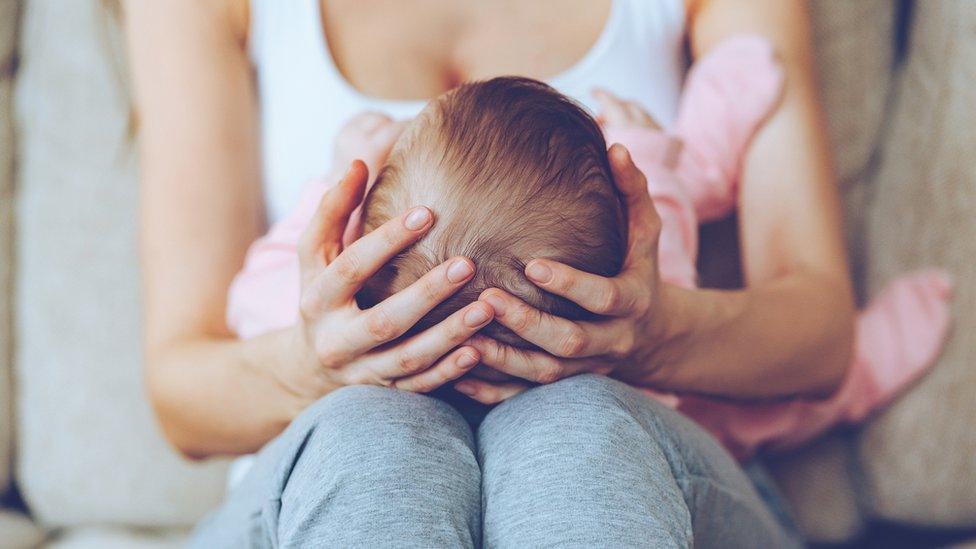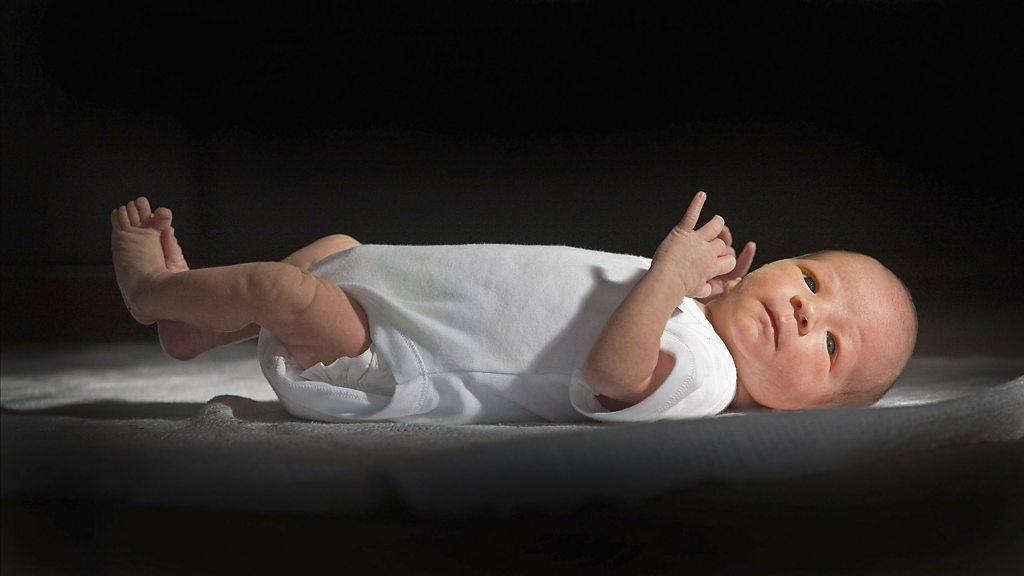Freebirth data 'should be collected across UK'
- Published
Eleanor Horrigan described her freebirth experience as magical
Data on how many women choose to give birth without medical assistance should be collected across the UK, medical associations have said.
The NHS in London records how many women "freebirth" via a form parents can complete at its child health hubs, external.
The Welsh, Scottish and Northern Irish governments said they had no plans to record such births.
The Royal College of Midwives and Royal College of Obstetricians and Gynaecologists say it would be welcome.
Eleanor Horrigan, 26, from Cardiff, had a freebirth five months ago and described it as a magical experience.
She said she arrived at her decision because she wanted to avoid examinations and being encouraged to have medical interventions she did not want.
But the Royal College of Midwives (RCM), Heads of Midwifery Wales group and Royal College of Obstetricians and Gynaecologists (RCOG) all expressed concerns about freebirths and pointed out potential risks for both mother and baby.
The Birth Trauma Association described it as "dangerous".
But Ms Horrigan said she was completely confident in her decision and giving birth to her daughter Autumn-Violet was "amazing".
"With my son's birth I felt there were exams and monitoring and you were being told what to do," she said.
"But with her birth I felt she [the baby] was telling me what to do and that's what was so amazing about it."

Ms Horrigan said she chose a freebirth because she was afraid of medical intervention
She rejected any suggestion her choice was risky, saying: "It's down to perception of risk.
"Having somebody there to disrupt what I wanted and to disrupt what I thought I needed to keep my birth safe… I would never judge anyone else for their decisions."
Ms Horrigan had planned a home birth for her first born, now four, but had him in hospital as there were no midwives available to visit her when she went into labour.
"I was pushed into things I didn't really want and felt like my choices were taken away from me in terms of examinations and being told to push," she said.
After having her first child she decided to train as an antenatal teacher, began working as a doula, external and decided her next birth would be at home with only her family and her friend, a fellow doula, present.
"The plan was always to do it ourselves but I knew that if I wanted to at any point I could call a midwife but that point never came."
She has no regrets and puts her daughter's easy temperament down to her birth choice.
"She's so content and so lovely. She's had the perfect entrance to the world."

Ms Horrigan has two children aged four and five months
NHS England said up to 200 women in London give birth without being registered with a GP or midwife each year.
It said this data was collected via a form parents can complete through child health hubs.
Freedom of information (FOI) requests to Wales' health boards revealed at least 463 women in Wales gave birth without a medic present over the past five years but it is not clear how many of those made a decision to reject medical help.
The RCOG said a better understanding of the numbers of freebirths would be beneficial.
"We welcome any data collected on freebirthing across the UK to help our understanding of women's birth preferences and inform best practice," it said.
The RCM said it would "welcome this type of data collection" as long as it is carried out "in accordance with data protection laws".
But it voiced concerns about freebirthing, saying it would "strongly discourage" it due to the "potential risks for both mother and baby".
"The RCM also believes that the more we develop maternity services which enable women and midwives to get to know each other and for women to trust their midwife, the less likely women are to choose to give birth without a midwife present," it said.
This was seconded by the Heads of Midwifery Wales group, which is made up of head midwives from each health board, who said it "cannot recommend something that is potentially unsafe".
But the Association for Improvements in Maternity Services (Aims) supported Ms Horrigan's choice, saying: "Trusts need to understand freebirths are legal. A freebirth is an active and positive choice."
Doula UK said it supported a "woman's autonomy and freedom of choice" but does not take a stand on unassisted childbirth.
Maureen Treadwell, co-founder of The Birth Trauma Association, said: "We have to raise our heads about the parapet and say it's dangerous.
"People are misled by stuff on the internet that suggests it's not dangerous but people on the internet have no responsibilities.
"If you freebirth you have to factor in you might die."
- Published13 August 2017

- Published2 August 2017
